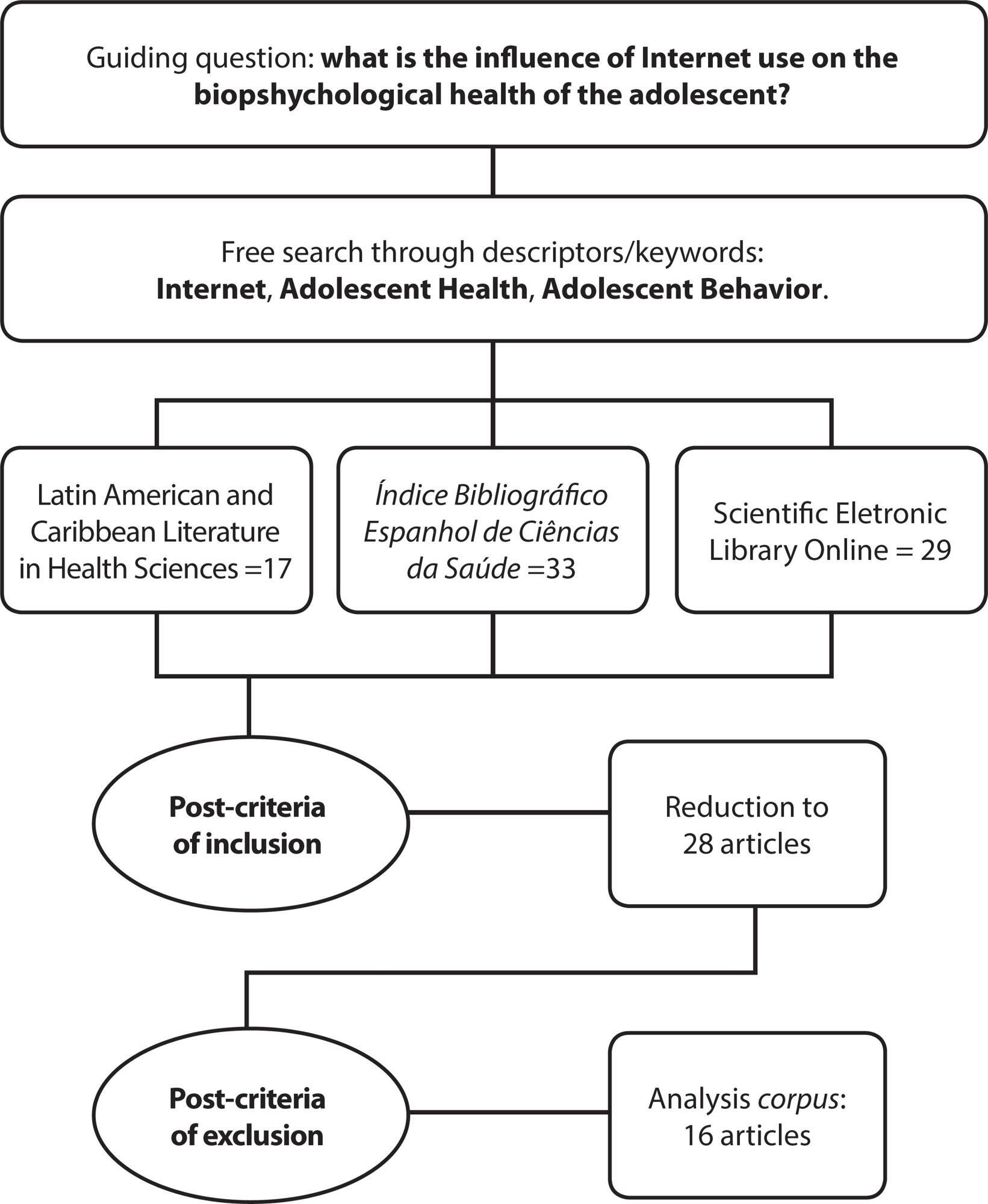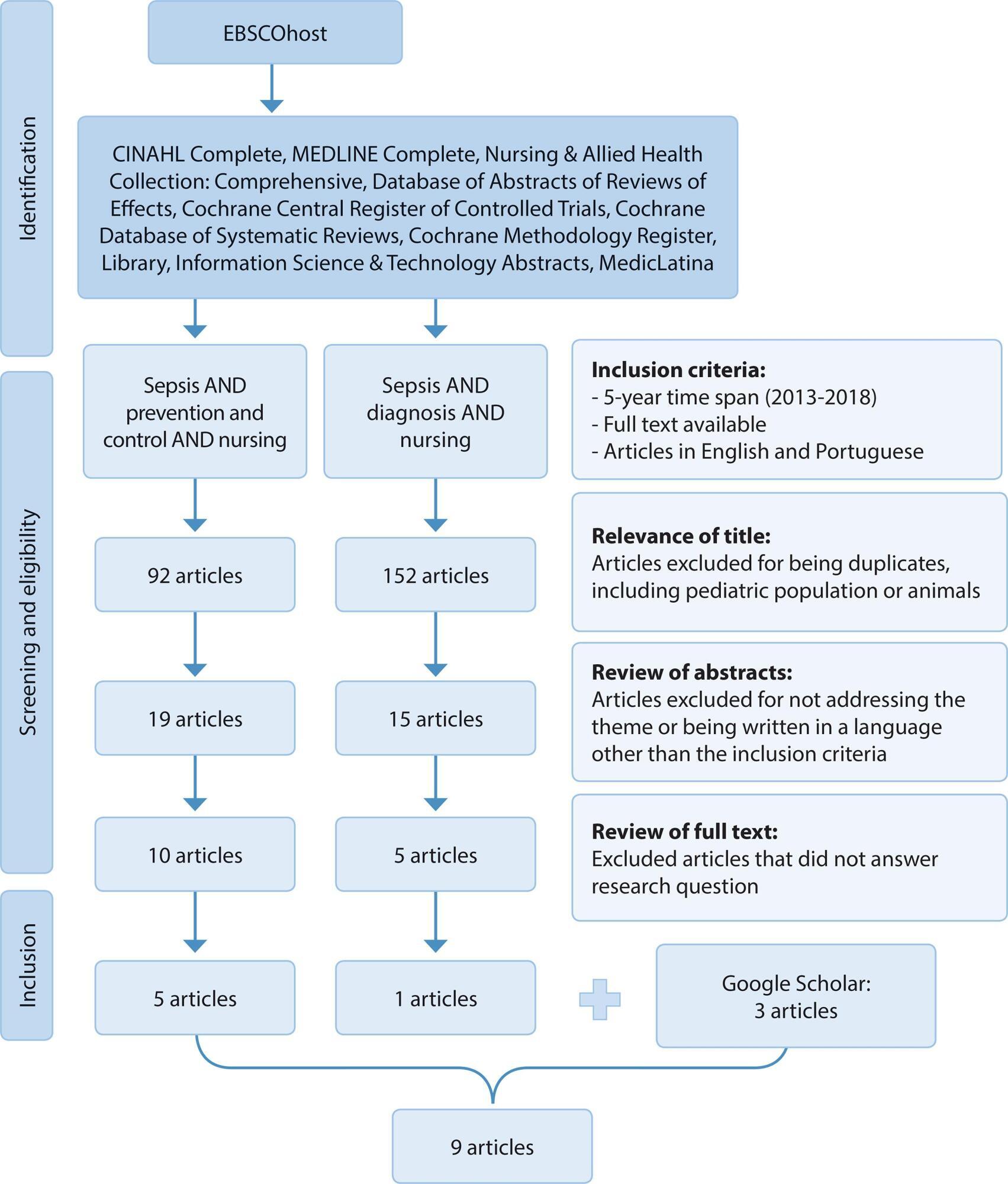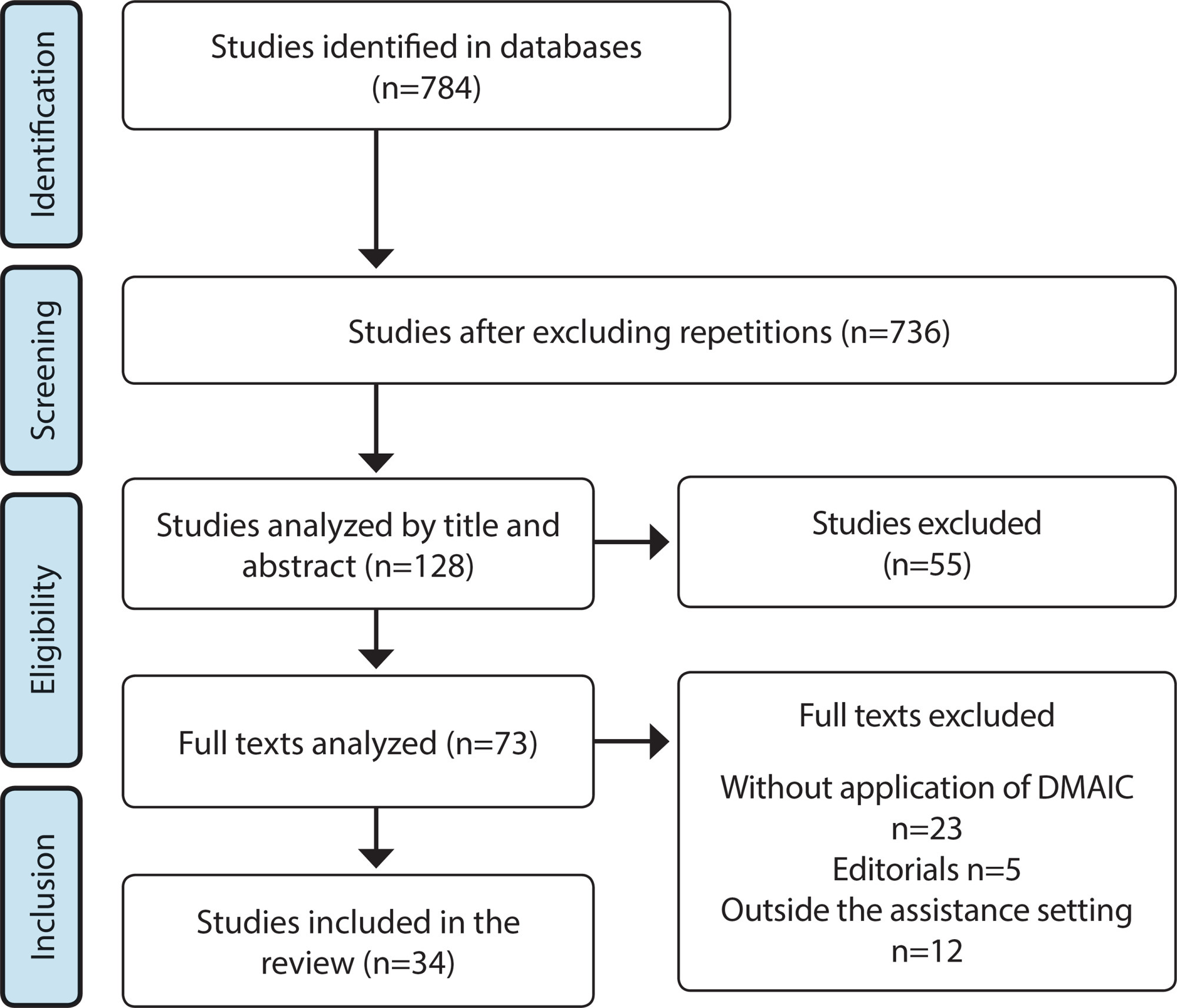-
ORIGINAL ARTICLE12-16-2024
Construction and validation of an educational game on biosafety in the central sterile supply department
Revista Brasileira de Enfermagem. 2024;77(6):e20230478
Abstract
ORIGINAL ARTICLEConstruction and validation of an educational game on biosafety in the central sterile supply department
Revista Brasileira de Enfermagem. 2024;77(6):e20230478
DOI 10.1590/0034-7167-2023-0478
Views0See moreABSTRACT
Objectives:
to construct and validate an educational game on biosafety in the Central Sterile Supply Department of a hospital in Curitiba, PR.
Methods:
the study was conducted using a quantitative approach, employing applied and technological research with an exploratory design. The process was divided into six stages, from the definition of the theme to the validation and application of the game. The study was carried out from May to August 2022, involving 17 nursing professionals from a Central Sterile Supply Department during day and night shifts, as well as 9 judges.
Results:
the study resulted in the construction of a board game named by the authors as “My Health First.”
Conclusions:
the research achieved its objective of constructing and validating an educational game. By reflecting on professional practice and correlating the occupational risks present, the professionals were able to list safe actions, identify problems, and seek solutions.

-
ORIGINAL ARTICLE12-16-2024
Health literacy development of Primary Health Care patients: qualitative research
Revista Brasileira de Enfermagem. 2024;77(6):e20240154
Abstract
ORIGINAL ARTICLEHealth literacy development of Primary Health Care patients: qualitative research
Revista Brasileira de Enfermagem. 2024;77(6):e20240154
DOI 10.1590/0034-7167-2024-0154
Views0See moreABSTRACT
Objectives:
to identify the process of health literacy development among primary care patients, relating it to their self-care practices.
Methods:
qualitative, prospective research with 22 patients from two Family Health Strategy units. Data were obtained through individual semi-structured interviews, examined through descriptive statistics and thematic content analysis.
Results:
the results discuss how participants learn about health and how this resonates in their behaviors, culminating in two thematic categories: “Health knowledge construction”; and “Dialogue between health knowledge construction and patient care actions”.
Final Considerations:
health knowledge is developed mainly through interpersonal relationships, mediated by health professionals through bonding and communication. Community educational actions and training of health professionals in communication can promote health literacy and self-care among patients.

-
ORIGINAL ARTICLE12-16-2024
Analysis of omission of antimicrobial doses in Intensive Care Units
Revista Brasileira de Enfermagem. 2024;77(6):e20240102
Abstract
ORIGINAL ARTICLEAnalysis of omission of antimicrobial doses in Intensive Care Units
Revista Brasileira de Enfermagem. 2024;77(6):e20240102
DOI 10.1590/0034-7167-2024-0102
Views0See moreABSTRACT
Objectives:
to analyze the rate of antimicrobial dose omission in intensive care units.
Methods:
cross-sectional study carried out between March 1 and September 30, 2023, in intensive care units of a University Hospital in Rio de Janeiro.
Results:
the sample consisted of 452 prescriptions and 1467 antimicrobial doses. The dose omission rate was 4.29%. Each antimicrobial prescribed increased the chance of omission by 51%. The strategy of double-checking prescriptions helped prevent 30% of antimicrobial dose omissions (p=0.0001).
Conclusions:
monitoring the omission of antimicrobial doses can guide nursing actions to improve quality and patient safety, contributing to the prevention of medication errors, antimicrobial stewardship and the fight against antimicrobial resistance.
-
REVIEW12-16-2024
Recommendations for guidelines for promoting mental health in the workplace: an umbrella review
Revista Brasileira de Enfermagem. 2024;77(6):e20240086
Abstract
REVIEWRecommendations for guidelines for promoting mental health in the workplace: an umbrella review
Revista Brasileira de Enfermagem. 2024;77(6):e20240086
DOI 10.1590/0034-7167-2024-0086
Views1See moreABSTRACT
Objectives:
to summarize the recommendations of guidelines for promoting mental health in the workplace.
Methods:
an umbrella review, according to Joanna Briggs Institute and Preferred Reporting Items for Systematic reviews and Meta-Analyses methodological assumptions. Data collection was carried out in January 2021 and updated in July 2023 in the American Psychological Association, Cochrane Library, EMBASE, National Library of Medicine, and Scopus databases. Systematic reviews that assessed guidelines with recommendations for mental health care for workers were included. PROSPERO registration CRD42023461845.
Results:
four systematic reviews published between 2015 and 2018 were identified. The abstracts highlighted actions that facilitate and inhibit the recommendations as well as three categories of intervention: primary prevention – worker protection; secondary prevention – promoting workers’ mental health; and tertiary prevention – supporting, monitoring and rehabilitating workers upon returning to work.
Conclusions:
the interventions are based on prevention, promotion and early recognition, support and rehabilitation of mental health problems.

-
ORIGINAL ARTICLE12-16-2024
Psychometric analysis of ProQOL-BR in nursing: building hospital safety and protection
Revista Brasileira de Enfermagem. 2024;77(6):e20240085
Abstract
ORIGINAL ARTICLEPsychometric analysis of ProQOL-BR in nursing: building hospital safety and protection
Revista Brasileira de Enfermagem. 2024;77(6):e20240085
DOI 10.1590/0034-7167-2024-0085
Views0See moreABSTRACT
Objectives:
to analyze the psychometric properties of the ProQOL-BR instrument in hospital nursing professionals.
Methods:
a methodological study to validate the ProQOL-BR. Confirmatory factor analysis, assessment of local and global adjustment quality, Pearson hypothesis testing and Cronbach’s alpha internal consistency analysis were used.
Results:
a total of 490 professionals participated. The model presents adequate quality due to factor weights (λ≥ 0.40), acceptable overall fit quality and adequate chi-square ratio and degrees of freedom (χ2/g.1=2.51) for the parameters of CFI (0.923), GFI (0.902), TLI (0.914) and RMSEA (0.042). In terms of validity, it was shown to be adequate with CC=0.89. The internal consistency obtained by standardized Cronbach’s alpha was 0.761. Criterion validity was shown to be favorable with significant correlations (0.001).
Conclusions:
the instrument was validated regarding content, criteria and reliability. Three questions were removed from the original instrument, ProQOL-BR, leaving the final instrument with 25 questions.

-
12-16-2024
GerenciaDOR™: development of digital technology by nurses for the assessment of patients with chronic pain
Revista Brasileira de Enfermagem. 2024;77(6):e20240050
Abstract
GerenciaDOR™: development of digital technology by nurses for the assessment of patients with chronic pain
Revista Brasileira de Enfermagem. 2024;77(6):e20240050
DOI 10.1590/0034-7167-2024-0050
Views0See moreABSTRACT
Objectives:
to develop a digital technological solution (prototype) for assessing patients with chronic pain.
Methods:
this is a methodological and technological development study based on the Human-Centered Design framework and the principles of Patient-Centered Care. The prototype guides patients through a body diagram and directs them to an evaluation using specific instruments that address the multidimensional aspects of chronic pain.
Results:
the GerenciaDOR* project enables navigation through the Web App screens, providing access to pain assessment features up to the presentation of results.
Final Considerations:
the study describes a systematic approach to pain assessment and expands nurses’ knowledge in pain management. Additionally, it can promote the development of other digital technologies for chronic pain assessment and contribute to a multidisciplinary, patient centered treatment.

-
ORIGINAL ARTICLE12-16-2024
Respectful care for postpartum women with sickle cell disease: a netnographic study
Revista Brasileira de Enfermagem. 2024;77(6):e20230545
Abstract
ORIGINAL ARTICLERespectful care for postpartum women with sickle cell disease: a netnographic study
Revista Brasileira de Enfermagem. 2024;77(6):e20230545
DOI 10.1590/0034-7167-2023-0545
Views1See moreABSTRACT
Objectives:
to analyze principles of respectful maternity care in narratives of postpartum women with sickle cell disease, relating them to Sustainable Development Goals.
Methods:
netnographic study, with two videos published in 2020. Deductive iconographic and thematic analysis by Respectful Maternity Care Charter, organized in MAXQDA.
Results:
principles identified were the right to: freedom from harm and ill-treatment; information, informed consent, refusal of medical procedures, and respect for their choices and preferences including companion; be considered a person from birth, with dignified and respectful treatment; health at the highest possible level; newborns being with their parents or guardians. The Sustainable Development Goals for women by 2030 were not positively contemplated in postpartum women’s experience.
Final Considerations:
it is appropriate that health workers qualify themselves to provide respectful maternity care, with qualified listening, understanding, and resolution of unique demands of postpartum women with sickle cell disease, seeking equality in care for women.

-
REVIEW12-16-2024
Strategies for expanding vaccination coverage in children in Brazil: systematic literature review
Revista Brasileira de Enfermagem. 2024;77(6):e20230343
Abstract
REVIEWStrategies for expanding vaccination coverage in children in Brazil: systematic literature review
Revista Brasileira de Enfermagem. 2024;77(6):e20230343
DOI 10.1590/0034-7167-2023-0343
Views1See moreABSTRACT
Objectives:
to identify the strategies found in the literature for increasing vaccination coverage among children in Brazil. It is justified mainly by the current scenario of falling vaccination coverage.
Methods:
systematic literature review. The search was carried out in the Pubmed (MEDLINE), Embase and Scopus databases, following the PRISMA guidelines.
Results:
initially, 4,824 results were returned. In the end, 6 studies were included for narrative synthesis using the SWiM methodology. Of these, 50% dealt with studies related to the Bolsa Família Program (PBF). The others explored strategies for approaching parents directly, Rapid Vaccination Monitoring (MRV) and the Community Health Agents Program (PACS). The PBF did not guarantee compliance with the conditionality of keeping vaccinations up to date. The MRV and PACS are effective strategies, especially because they allow active search for absentees.
Conclusions:
we conclude that more publications are needed on strategies to increase vaccination coverage among children in Brazil.

-
ORIGINAL ARTICLE06-16-2021
Patient participation in care safety: Primary Health Care professionals’ perception
Revista Brasileira de Enfermagem. 2021;74(2):e20200773
Abstract
ORIGINAL ARTICLEPatient participation in care safety: Primary Health Care professionals’ perception
Revista Brasileira de Enfermagem. 2021;74(2):e20200773
DOI 10.1590/0034-7167-2020-0773
Views0See moreABSTRACT
Objectives:
to analyze health professionals’ perception about the meaning and practice of patient involvement in care safety in Primary Health Care.
Methods:
this is an exploratory, qualitative study, developed with 22 professionals in the Federal District, Brazil. A semi-structured interview was conducted between October and November/2018. Content analysis was carried out according to Bardin.
Results:
nurses, physicians, dentists, among others, participated. The following categories emerged: Meaning of patient involvement in care safety; Factors intervening in patient involvement in care safety; Strategies for patient involvement in care safety; Qualification for patient involvement in care safety.
Final Considerations:
the meaning of patient involvement for care safety was associated with co-responsibility and patient-centered care. Professionals’ practice revealed intervening factors and the use of involvement strategies. A gap was identified in training on patient involvement in care safety.
-
REVIEW03-30-2020
Internet influence on the biopsychosocial health of adolescents: an integratitive review
Revista Brasileira de Enfermagem. 2020;73(2):e20180766
Abstract
REVIEWInternet influence on the biopsychosocial health of adolescents: an integratitive review
Revista Brasileira de Enfermagem. 2020;73(2):e20180766
DOI 10.1590/0034-7167-2018-0766
Views0See moreABSTRACT
Objectives:
To identify scientific evidence on the influence of internet use on adolescents’ biopsychosocial health.
Methods:
Integrative review, with database search, using the descriptors “internet”, “adolescent health” and “adolescent behavior”. After applying the inclusion and exclusion criteria, 16 articles were selected.
Results:
Knowledge convergence produced for three main themes was demonstrated: “Internet exposure time and possible damages to adolescent health”; “Internet, adolescent and cyberbullying”; and “Internet as a source of information for adolescent health”.
Final considerations:
The network involves an intricate network of interactions, providing varied behaviors and attitudes that reflect on adolescent health. Therefore, it is important to articulate nursing actions with the school community and the family, in order to carry out health education.

-
REFLECTION07-10-2020
Psychosocial risks and the health of health workers: reflections on Brazilian labor reform
Revista Brasileira de Enfermagem. 2020;73:e20190092
Abstract
REFLECTIONPsychosocial risks and the health of health workers: reflections on Brazilian labor reform
Revista Brasileira de Enfermagem. 2020;73:e20190092
DOI 10.1590/0034-7167-2019-0092
Views0See moreABSTRACT
Objective:
to reflect on the psychosocial risks and their impacts on the health of health workers in light of the Brazilian economic context and Labor Reform.
Method:
reflective study on the Brazilian Labor Reform and its impacts on health of health workers.
Results:
although the changes observed in the labor sphere have contributed to improvements in health and safety policies for, these changes have also contributed to the emergence of new risks arising from work activities, including psychosocial risks, which affect all occupational categories.
Final considerations:
we understand that the Brazilian Labor Reform carried out in 2017 leads to the weakening of labor relations, increases workers’ exposure to risks in the workplace, increases the risk of illness, and opposes the global movement of international organizations aimed at the prevention of aggravation in workers’ health and also at preserving their health.
-
REVIEW06-17-2020
The role of the nurse in caring for the critical patient with sepsis
Revista Brasileira de Enfermagem. 2020;73(4):e20190031
Abstract
REVIEWThe role of the nurse in caring for the critical patient with sepsis
Revista Brasileira de Enfermagem. 2020;73(4):e20190031
DOI 10.1590/0034-7167-2019-0031
Views0See moreABSTRACT
Objectives:
to know the nursing interventions in the identification, prevention and control of sepsis in critical patients.
Methods:
integrative review of the literature, with two parallel researches using different MesH terms, using the EBSCO database and Google Scholar. Nine studies were included in the sample.
Results:
nursing interventions are centered on the creation/implementation of protocols for the early recognition of sepsis, the training of teams to ensure a safe and effective approach and the adoption of measures for infection prevention and control as a way to prevent sepsis.
Final Considerations:
the evidence shows that nurses are fundamental in the early identification, control and prevention of sepsis, preventing disease progression and contributing to decreased morbidity and mortality.

-
ORIGINAL ARTICLE05-15-2020
Configuration of power relations in physicians and nurses’ professional practices
Revista Brasileira de Enfermagem. 2020;73:e20180629
Abstract
ORIGINAL ARTICLEConfiguration of power relations in physicians and nurses’ professional practices
Revista Brasileira de Enfermagem. 2020;73:e20180629
DOI 10.1590/0034-7167-2018-0629
Views0See moreABSTRACT
Objective:
to analyze the configuration of power relations constituted in and by the knowledge and daily practices of physicians and nurses in an Intensive Care Unit (ICU).
Method:
qualitative study in which data were collected through interviews with physicians and nurses from an ICU of a hospital in Belo Horizonte, Minas Gerais. A semi-structured script was used. Data were analyzed through discourse analysis in a Foucaultian perspective.
Results:
three categories were developed – Professional Identity: self-recognition in the profession; Discipline: individualizing attitudes or collective need?; and Circularity of knowledge and power in the constitution of daily practices.
Final considerations:
the identity, discipline and circulation of power are connected in a continuous movement of subjectivation of the subject, which, in turn, uses discourse as a persuasion strategy to modify the position taken over in different situations thereby causing the circulation of power.
-
ORIGINAL ARTICLE02-10-2020
Theater of the Oppressed and bullying: nursing performance in school adolescent health
Revista Brasileira de Enfermagem. 2020;73(1):e20170910
Abstract
ORIGINAL ARTICLETheater of the Oppressed and bullying: nursing performance in school adolescent health
Revista Brasileira de Enfermagem. 2020;73(1):e20170910
DOI 10.1590/0034-7167-2017-0910
Views0See moreABSTRACT
Objective:
to assess the effects of an intervention based on the Theater of the Oppressed in reducing school bullying.
Method:
a quasi-experimental study with 232 first-year high school students from two public schools in the city of Cuiabá, Mato Grosso State, Brazil. An intervention was performed with the Theater of the Oppressed, a theatrical methodology created by Augusto Boal and inspired by Paulo Freire’s “Pedagogy of the Oppressed”, in which one school composed the intervention group, and another school, the comparison group. Both groups were assessed for involvement in bullying situations before and after intervention. For data analysis, Poisson Regression models with random effect were used.
Results:
intervention group presented a significant decrease in direct victimization (physical and verbal aggression).
Conclusion:
the Theater of the Oppressed represents an important strategy in reducing bullying victimization among school adolescents.
-
ORIGINAL ARTICLE02-10-2020
Common Mental Disorders and Contemporary Factors: 1982 Birth Cohort
Revista Brasileira de Enfermagem. 2020;73(1):e20180162
Abstract
ORIGINAL ARTICLECommon Mental Disorders and Contemporary Factors: 1982 Birth Cohort
Revista Brasileira de Enfermagem. 2020;73(1):e20180162
DOI 10.1590/0034-7167-2018-0162
Views0See moreABSTRACT
Objective:
To describe the association between common mental disorders and socio-demographic variables, smoking habits and stressful events among the 30-year-old members of a 1982 cohort.
Method:
Mental disorder was analyzed by the Self-Reporting Questionnaire (SRQ-20). Poisson regression was used to analyze the unadjusted and adjusted associations.
Results:
Low level of education and stressful events increased the prevalence of mental disorders for both genders. Lower income for women and unemployment for men also remained associated with CMD.
Conclusion:
It was possible to describe the association between contemporary factors and mental disorders in a young population, to which prevention and control measures, through public policies proposed to the areas of Primary Care, Mental Health and Education, can represent a better quality of life and health.
-
REVIEW12-21-2020
Lean Six Sigma methodology application in health care settings: an integrative review
Revista Brasileira de Enfermagem. 2020;73:e20190861
Abstract
REVIEWLean Six Sigma methodology application in health care settings: an integrative review
Revista Brasileira de Enfermagem. 2020;73:e20190861
DOI 10.1590/0034-7167-2019-0861
Views0See moreABSTRACT
Objective:
to analyze the scientific production on the results of Lean Six Sigma methodology in health care institutions.
Methods:
an integrative literature review, with the following question: what are the results in health institutions using Lean Six Sigma and Six Sigma methodology? The search was carried out at MEDLINE, LILACS, BDENF, CINAHL, Web of Science, and Scopus, with no time frame.
Results:
thirty-four articles were included, published between 2005 and 2019, of which 52.9% came from the United States of America. The most commonly found improvements were in hospital institutions and from the perspective of customers and internal processes.
Conclusion:
using Lean Six Sigma methodology proved to be effective in the different health care settings, evidencing a gap in its application regarding people engagement and training.

Search
Search in:
Nuvem de Tags
Adolescente (85) Atenção Primária à Saúde (239) COVID-19 (91) Criança (91) Cuidados de Enfermagem (269) Educação em Enfermagem (151) Educação em Saúde (139) Enfermagem (930) Enfermagem Pediátrica (86) Estudantes de Enfermagem (77) Estudos de Validação (131) Família (87) Idoso (208) Promoção da Saúde (99) Qualidade de Vida (104) Saúde do Trabalhador (86) Saúde Mental (145) Saúde Pública (82) Segurança do Paciente (150) Tecnologia Educacional (100)



